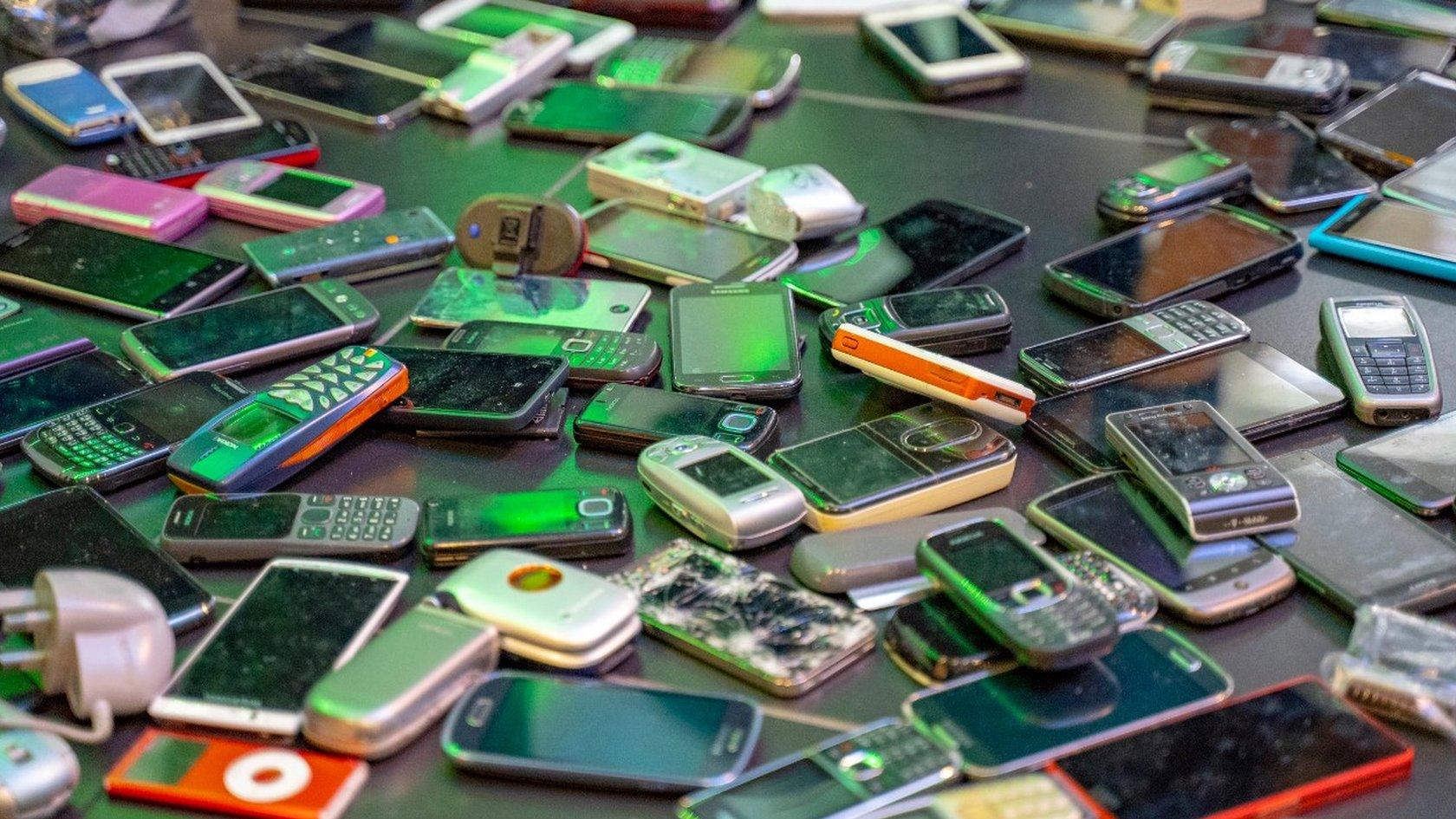Smartphones: The Royal Mint to extract gold from old phones
- Published
- comments
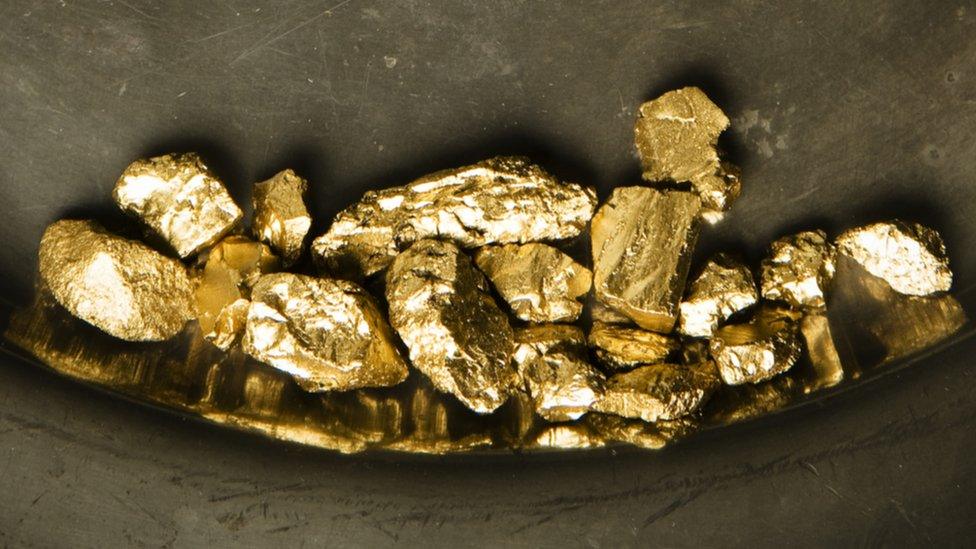
Fewer than one fifth of the world's electronic waste is recycled, estimates show
Gold and precious metals are to be extracted from old phones and laptops by Britain's coin-maker.
The Royal Mint plans to introduce a world-first technology to the UK to recycle gold from electronic waste.
Less than one fifth of electronic waste ends up being recycled, estimates show.
The mint's chief executive Anne Jessopp said the technology would help to "make a genuine impact on one of the world's greatest environmental challenges".
The Royal Mint has signed an agreement with Canadian start-up Excir to recover 99% and more of gold from devices' circuit boards.
It said the chemistry selectively targets and extracts precious metals from circuit boards in seconds.
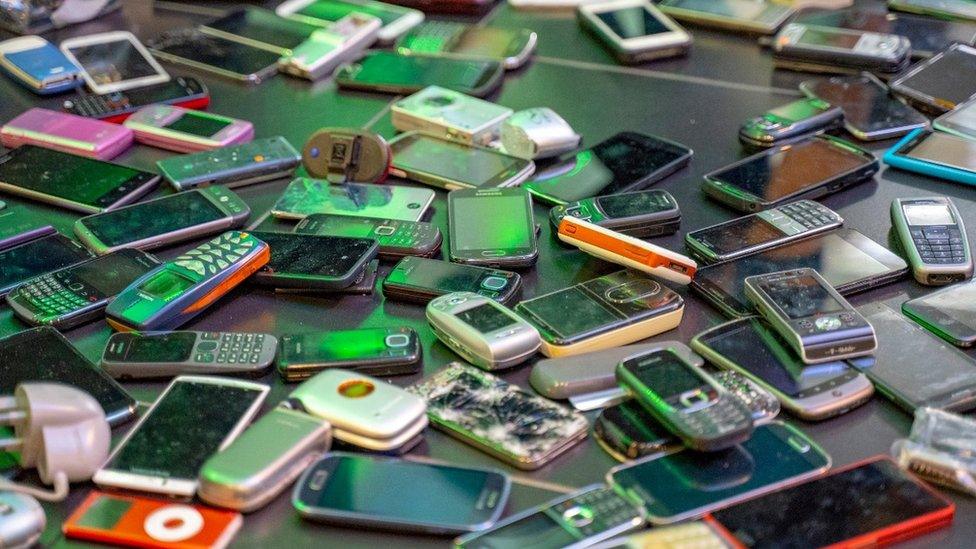
Smartphones contain around 30 different elements, some of which the Earth is running out of
Researchers have estimated electronic and electrical equipment discarded in 2021 will weigh more than 57 million tonnes, external.
If nothing is done to counter the problem, electronic waste is set to reach 74 million tonnes by 2030 - almost a doubling of tonnage in a decade, the mint said.
The plans would see precious metals recovered at room temperature at the mint's site in Llantrisant, in Rhondda Cynon Taf, instead of electronic waste leaving UK shores to be processed at high temperatures in smelters.
Initial use of the technology at the Royal Mint has already produced gold with a purity of 999.9, but when fully scaled up it has potential to also recover palladium, silver and copper.
Smartphones contain around 30 different elements, some of which the Earth is running out of
The mint's Ms Jessopp described the potential of the technology as "huge" in its ability to reduce electronic waste, preserve precious metals, and develop new skills.
Sean Millard, chief growth officer at the Royal Mint, added that the chemistry was "revolutionary".
"It offers huge potential for The Royal Mint and the circular economy - helping to reuse our planet's precious resources and creating new skills in the UK."

A KILLING IN TIGER BAY: The full and shocking true story

Related topics
- Published29 April 2021
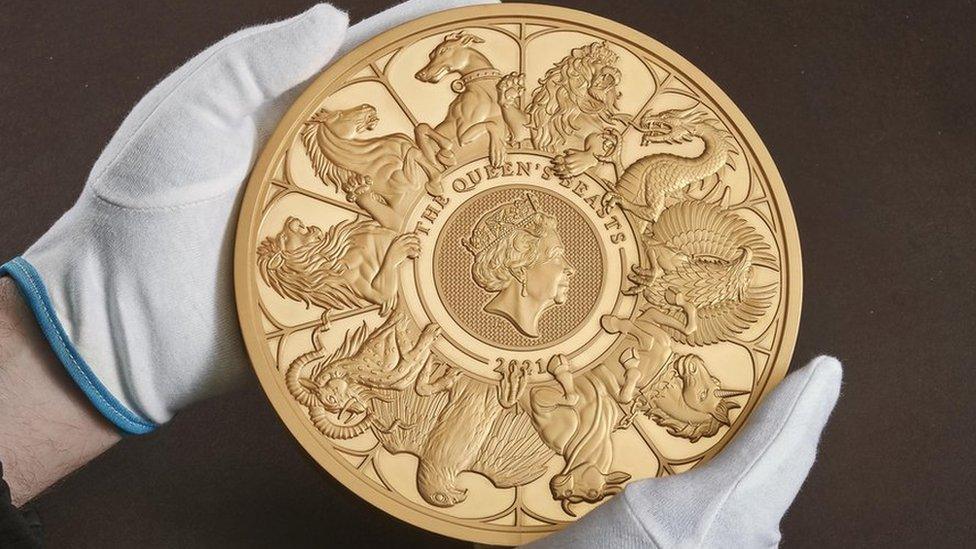
- Published13 October 2021
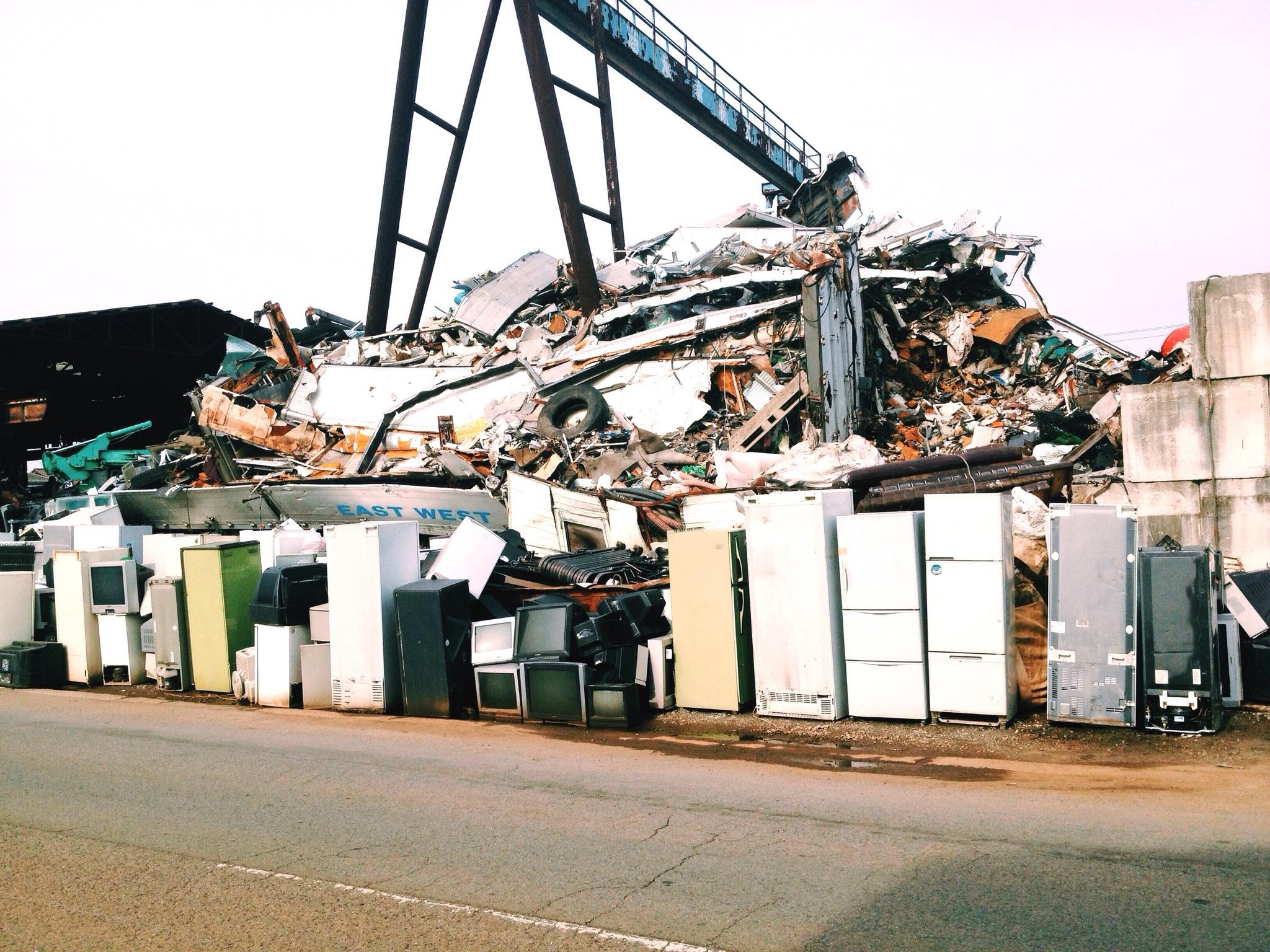
- Published21 August 2019
